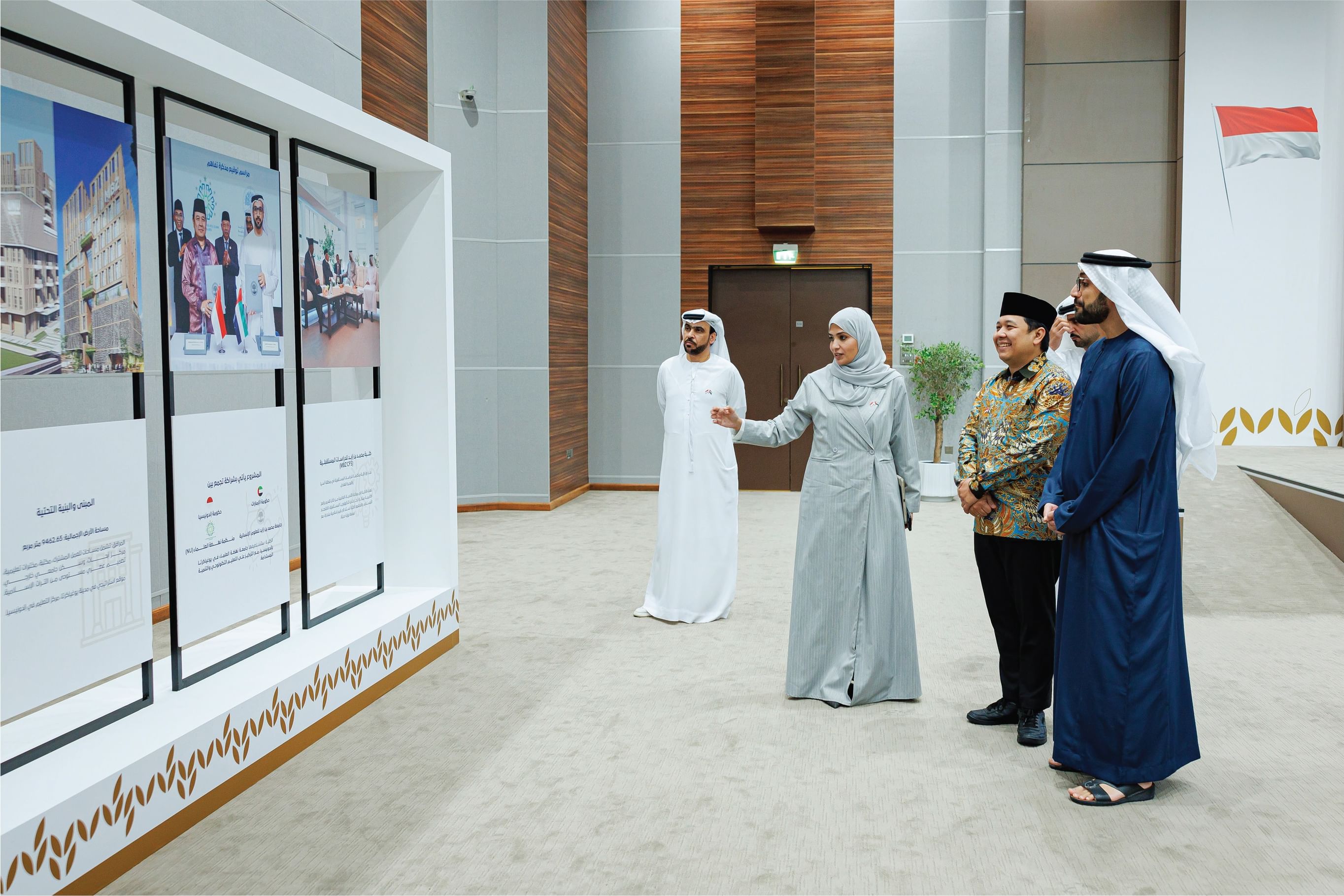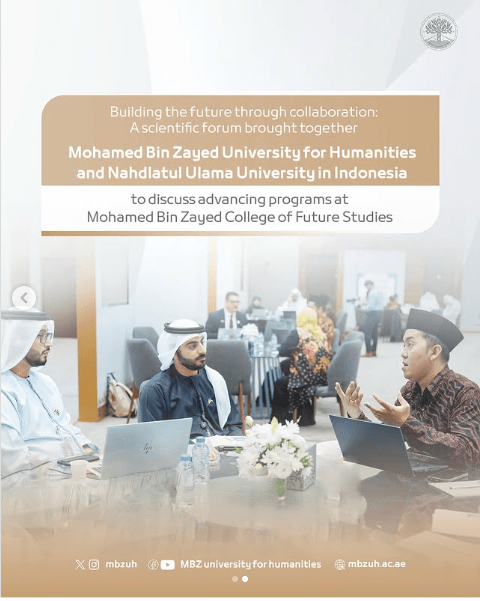
The Mohamed Bin Zayed University for Humanities has organised the “Scientific Forum for Programme Development”, in collaboration with Nahdlatul Ulama University in Indonesia.
The initiative represents a strategic step towards the establishment of the Mohamed Bin Zayed College of Future Studies (MBZ CFS) in Yogyakarta, Indonesia.
The college was conceptualised as a result of a strategic partnership between the governments of the UAE and Indonesia. Yogyakarta, renowned for its prestigious academic standing, was chosen as the ideal location for the college, reflecting the profound shared vision of the two nations.
The two-day forum yielded fruitful results, including enhanced coordination between the joint scientific committees for knowledge exchange and experience sharing. It also facilitated discussions on future plans related to the operational framework of the college, aligning both academic and administrative bodies.
The Mohamed Bin Zayed College of Future Studies is envisioned to become a leading academic institution, blending authentic Islamic values with advanced future studies. The inaugural academic cohort is set to commence in 2026.
On the sidelines of the forum, several meetings and workshops were held between the joint international committees representing both Mohamed Bin Zayed University for Humanities and Nahdlatul Ulama University focusing on the exchange and transfer of scientific expertise.
The sessions reviewed developments related to the project, including the development of academic curricula, analysis of digital system requirements, and mechanisms for implementing the highest standards of academic quality.
Discussions also covered research projects aimed at enhancing the college’s leadership in future studies and transforming it into a global centre for innovation.
The Mohamed Bin Zayed College of Future Studies aims to equip students with practical knowledge and advanced skills to address contemporary global challenges.
Its academic programmes will cover vital fields such as Artificial Intelligence, digital economy, sustainable innovation, Islamic jurisprudence, and contemporary ijtihad. It seeks to produce a generation of leaders and thinkers capable of developing innovative solutions that will address humanity’s biggest challenges.
In its initial phase, the college will offer six specialised master’s programmes designed to empower students with the capabilities needed to meet future demands.
These postgraduate programmes include Artificial Intelligence and Data Science, Digital Business Management, Food Engineering and Technology, Global Innovation and Future Studies, Sustainable Critical Infrastructure, and Humanities and Social Sciences, including Islamic Jurisprudence, Contemporary Ijtihad, and Islamic Economics.
Dr. Khalifa Al Dhaheri, Mohamed Bin Zayed University for Humanities Chancellor, emphasised that the “Scientific Forum for Programme Development” represents a pivotal step toward academic innovation by aligning programmes with industry needs, the labour market, and societal requirements.
He commended the constructive collaboration between the international joint committees, which paves the way for achieving this ambitious academic project.
Dr. Al Dhaheri highlighted the strategic partnership between the governments of the UAE and Indonesia, as well as Nahdlatul Ulama University, as a model for fruitful international cooperation. He noted that this partnership aims to deliver innovative education that supports sustainable development and prepares qualified professionals capable of addressing future challenges.
He further explained that the Mohamed Bin Zayed College of Future Studies will enhance the UAE and Indonesia’s status as leaders in innovation and academic excellence.
Dr. Al Dhaheri described the college as a global platform for exchanging ideas and creative solutions to tackle the world’s pressing challenges, solidifying its position as a pioneering academic project on the international stage.


